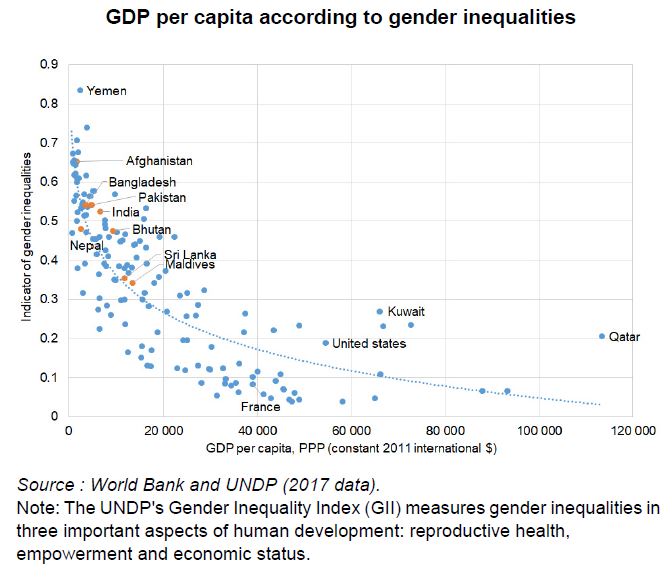Female labour force participation in South Asia
While gender equality is in itself a crucial development goal that addresses moral and societal issues, it is also of significant economic interest. Realizing women's full economic potential would have a major impact on the growth of economies, particularly in South Asia, the region of the world where labour market participation is the most unequal between the sexes.
To quote Kofi Annan, the seventh Secretary-General of the United Nations, "Gender equality is more than a goal in itself. It is a precondition for meeting the challenge of reducing poverty, promoting sustainable development and building good governance". Were women to achieve their full economic potential, there would be a profound effect on economic growth. This would be especially true in South Asia, the region of the world in which there is the most gender inequality on the labour market: in 2018, 77% of men of working age had a job compared to only 25% of women.
Besides the issue of women's access to jobs, the conditions for labour market participation are unequal. Women in South Asia are afflicted by more job insecurity than men and are disproportionately responsible for unpaid housework, which gives rise, de facto, to a substantial opportunity cost. South Asian women are also underrepresented in positions of authority in the private, public and legislative spheres.
As the region in which labour market participation is subject to the most gender inequality, South Asia is also the region which could reap the highest potential economic benefits if it were to address this situation. If the gender gap were to be totally closed, it is thought that India could boost its annual GDP by 60% and South Asia as a whole by 48%.
A number of initiatives to bolster women's economic empowerment and their labour force participation have been rolled out in South Asia. They are wide-reaching, ranging from promoting female education, entrepreneurship and leadership to the broader notion of gender budgeting. Much still needs to be done although South Asia appears to be taking stock of the issue's economic, social and moral stakes and is gradually moving towards more equal participation of men and women in the economy.
